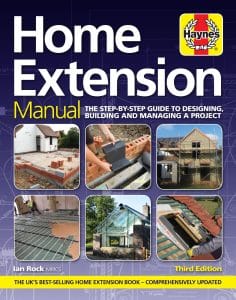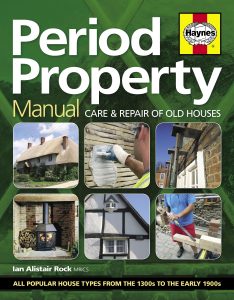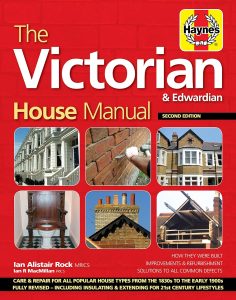Property Tips by Chartered Surveyor Ian Rock FRICS – from the Haynes House Manual series
Have you checked your home’s EPC rating?
Anyone planning to sell or let a property must by law get it professionally assessed so it’s marketed with an Energy Performance Certificate (EPC).
Estate agents normally offer to arrange getting the EPC for their clients, but the amount they charge isn’t always 100% clear, so it’s often cheaper to arrange this yourself.
In recent years the energy efficiency of buildings has become a more important factor for purchasers. But there are so many important features to consider when buying a home – location, condition, size, architectural style, price etc – that energy performance rarely appears near the top of the list. Also if the property you’re buying is poorly insulated and costs a lot to run in energy consumption you can always upgrade the insulation at a later date. The EPC can then come in useful as it tells you what measures you can take to improve its future performance and cut heating bills.
But things are changing. Mortgage lending is getting tighter on properties with poor EPC ratings – which usually means older properties. As time goes by and the carbon emissions of the UK’s housing stock need to be further reduced this will have ever greater impact on the saleability and lettability of our homes.
So if you buy somewhere with a poor EPC rating it could be storing up trouble for the future.
At present this mostly affects rented properties. If you take out a Buy To Let (BTL) mortgage it must meet a minimum EPC rating of E to be deemed fit for letting. So if it’s got a lowly F or G rating the bank will likely decline the mortgage causing major problems. And if a property isn’t readily ‘mortgageable’ its market value will take a hit. So it’s important to note that it’s currently proposed that the minimum rating will rise to a much tougher ‘C’ in the near future.
Although there are some exemptions, this may change as energy efficiency rises up the political agenda. At present, if a landlord can prove they cannot reach a minimum EPC rating of E despite having undertaken all possible improvement works (up to a value ceiling of £3,500), they can register a “high cost” exemption under section 25 (1) of the MEES Regulations – so the property is then deemed to be lettable. But in practice, the complexity of trying to get this approved for mortgage valuation purposes can be quite daunting. This ‘high cost’ exemption is more likely to affect Listed buildings where the cost and practicality of upgrading is likely to prove problematic.
As time goes by and energy performance legislation becomes ever tighter (both for letting and sale) properties with poor EPC ratings will become much harder to sell and will consequently suffer a loss of market value.
So it obviously makes sense to carry out thermal efficiency improvements by upgrading insulation etc, both to save money by reducing running costs and to improve the property’s market value.
See Rightsurvey.co.uk for a quick guide to survey prices
Check out our other posts for more info that will help you pay the right price for the right property.
We would always recommend using RICS certified surveyors in every instance – don’t get caught out, get instant quotes for RICS surveyors here.
Ian Rock’s Rightsurvey property tips are taken from the Haynes House Manual series.







